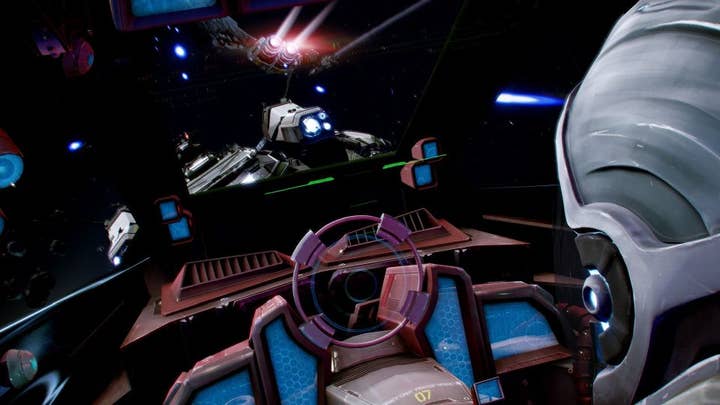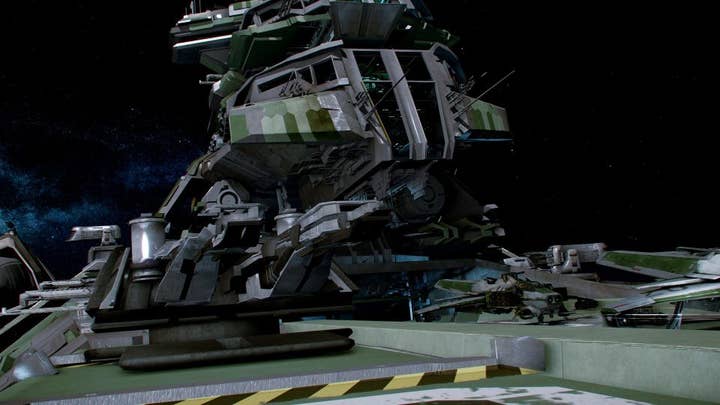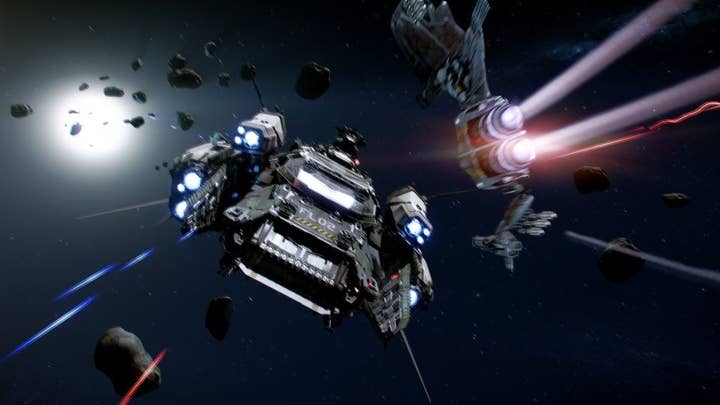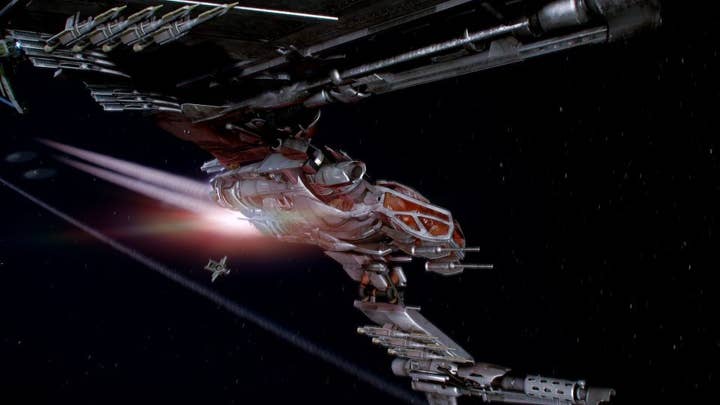Chris Roberts returns to gaming with ambitious space sim
We speak with the veteran game maker about his new project, which will have a budget around $12 million
Chris Roberts, creator of hit games such as the Wing Commander series and Freelancer, left the game industry in 2000 when he sold his company Digital Anvil to Microsoft. Since then he's been producing movies such as The Punisher in 2004, Lord of War and Lucky Number Slevin. Now he's returning to the game business with a grand vision of cutting-edge space simulations, beginning with his new game Star Citizen.

"I want to make a game again; I feel like I've got something to say," Roberts told GamesIndustry International. "The changes in the technology in the industry will allow me to do a much more immersive experience. The original Wing Commander was always about the immersion."
Roberts has started a new company, Cloud Imperium Games, in order to make this happen; Roberts is the Chief Creative Officer while Ortwin Freyermuth, veteran movie and game production executive, is the CEO.
Chris Roberts' vision, unveiled this week at GDC Online in Austin, shows a game engine that will give a high-end PC a real workout. "With today's hardware you can really up the visual fidelity and the immersion, and that's something my time in film has helped me to appreciate," noted Roberts. "It's all about that suspension of disbelief." The rendering requires some significant graphics capability, and is sure to provide a good reason to buy that new graphics card you've had your eye on. Roberts feels that the PC gamer hasn't had that many games recently that really take advantage of the latest PC hardware, and he aims to solve that problem.

The game play in the space combat simulation uses a Newtonian physics model that allows for interesting tactical choices, according to Roberts. While the simulation engine does all the hard work of figuring out what thrusters to fire in order to send your spacecraft in the direction you indicate, it's going to deal with your vector and mass and other factors. That allows you to make choices like, say, diverting power from your screens to your thrusters in order to turn faster, at the cost of being more vulnerable. Similarly, you may choose to outfit your ship with heavier armor and weapons, but that extra mass will make it less maneuverable.
"With the move to digital distribution I feel you can really be connected to your community in a way I couldn't really have done with any other retail model"
Chris Roberts
The business model will be similar to Guild Wars 2, in Roberts' vision. Players will pay up front for software, and then play online for free. Players can always earn more credits in the game through play, but if that process is too slow credits can be purchased as well. Significant new content will probably require a purchase as well. Roberts feels this is a fair exchange for the amount of effort that will be going into the product.

Crowd-funding will be key to getting Star Citizen off the ground. "I'm building this with a good chunk of private equity and a small component of crowd-funding," Roberts explained. "I need to validate to the private equity that there really is a demand for high-end PC games, and that people really want to play space games again. I think there will be, but that is the deal I did with investors." Roberts is looking for between $2 million and $4 million dollars from crowd-funding, which will result in an overall budget in the $10 to $12 million dollar range. The project will be equivalent to a publisher spending at least twice that amount, in Roberts' estimation, because he doesn't have the overhead of a major publisher.
Roberts isn't using Kickstarter for his crowd-funding efforts, unlike other famous game designers recently. There are a considerable number of international fans that Kickstarter doesn't serve adequately, in his view, and raising the funds directly allows him to make the process as frictionless as possible.

"With the move to digital distribution I feel you can really be connected to your community in a way I couldn't really have done with any other retail model," Roberts said. "You have an opportunity now as a game maker to be connected to your audience on a real-time basis. I find that really interesting and compelling."
Roberts' long term vision is of a persistent, massively multiplayer universe where you can combine various types of game experiences, from space combat to exploration to trading. His feeling is that gamers are ready to see a game push the envelope graphically, and will vote for that well in advance of the game's release with their dollars. We'll be watching to see how this project unfolds.

